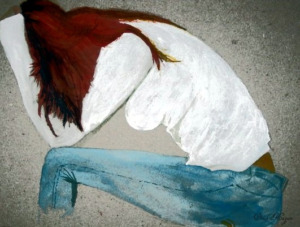 You may have noticed that alcoholism and depression are very often linked together. Where you find one, frequently you find the other.
You may have noticed that alcoholism and depression are very often linked together. Where you find one, frequently you find the other.
People who have struggled with depression throughout their lives have a very high likelihood of turning to alcohol and drugs for respite. In fact, over 50% of those who commit suicide were also abusing alcohol or drugs at the time of their death.
Paradoxically, however, alcoholics often don’t associate alcohol as being a major contributor to their depression. The reason they drink is because that is the only time they can escape the insufferable darkness and feel good.
But when you are in the midst of alcoholism, it’s difficult to see just how this short-term buzz is actually dragging you deeper over the edge in the long-term. I’ve been there, done that. It’s exasperating.
That tasty buzz fuels the spiral
Obviously, it’s true that alcohol consumption initially delivers a feeling of elation and well-being. If that weren’t true, there wouldn’t be many alcoholics.
The problem is that many depression sufferers develop the very bad habit of constantly turning to alcohol to relieve the pain. It becomes a daily ritual and a lifestyle. This is when depression and alcohol become entwined in a kind of death spiral.
It’s difficult for the alcoholic to see that it is in fact compounding and exacerbating the negativity and darkness. That alcohol abuse is causing great harm to not only the psyche, but their physical body as well.
Having associated alcohol with feeling good, they are blind to the fact it is ravaging both their mind and body.
Why are alcohol and depression linked?
First and foremost, alcohol is a depressant to the central nervous system. This seems counter-intuitive, however. It is commonly observed and accepted that moderate alcohol consumption releases a person’s inhibitions. It feels more like a stimulant.
But this is merely a psychotropic effect. It’s only in your mind.
The good feelings result from the release of neurotransmitters in the synapses of the brain. Alcohol causes a rushed release of these feel-good chemicals that would have otherwise been slow-dripped.
Good in the short term, but after the initial rush, drops you into despair. Your delicate brain chemistry toppled by drink. And suddenly, all that darkness.
Alcohol is a neurotoxin and major depressant
It is well documented that alcohol reduces motor activity and stimulus sensitivity in the body. Alcohol is also depressant of the mind as well.
Alcohol is treated as a toxin by the body and is filtered and flushed out of the system by the liver. During this process, many important water-soluble vitamins and minerals such as vitamin B and D are also flushed out. This chronic loss of vitamins contributes to an imbalance in the body that can also cause mental instability and depression.
Alcohol abuse wreaks havoc on nearly every organ of the body. Proper digestion of foods and thus nutrient absorption is greatly hindered. Alcohol is processed as a sugar and therefore blood sugar levels tend to spike and then nosedive, putting a person at risk for diabetes and other complications.
The reason this is linked to depression is because depression is often correlated with physical maladies such as blood sugar irregularities, etc. A body that is under stress will also put that person’s mind under stress. Although many people do not readily understand this link between the body and the mind, it has been shown that depression is highly correlated to the health of a person’s physical body. Diet and exercise and a healthy body go so far to produce a sunny disposition and a stable mental outlook.
If you have depression, avoid alcohol consumption
For these reasons, it is vital that if you have it depression that you understand the importance of avoiding alcohol consumption. There are many depression medications available today that do a wonderful job at alleviating the chemical imbalances in the brain that cause depression. They are very effective and therefore it is unnecessary for one to turn to alcohol as a source of relief.
Now that you understand how alcohol and depression are inextricably linked, please instead seek the advice of a psychiatrist or medical doctor for help with your depression instead.
Featured photo: “I cannot go on” by delboy/hammer is licensed under CC BY-ND


Dan Peterson
Really enjoyed your article on Alcoholic Neuropathy. Would like to chat with you if you are available.
I have mild neuropathy in my feet and fingers. I can be reached at 509-592-0413 if you’re up to a conversation.
Thank you so much.
Dan Peterson